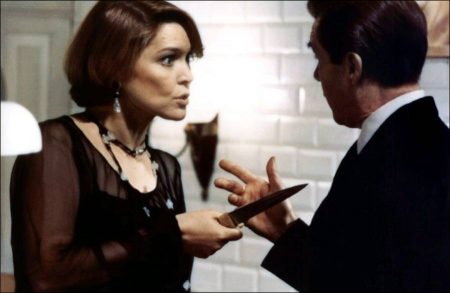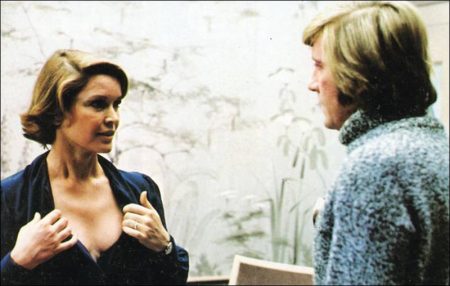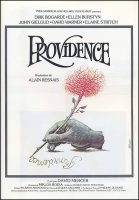Taglines: A movie of rare intelligence.
Providence movie storyline. Clive Langham (John Gielguld) is an old writer with health problems who still enjoys the gifts of life, as his gusto of his daily white wine. He is a storyteller and he tells us of his family, especially of his sons. He has two sons: one is Claude Langham, the official one, a successful lawyer (Dirk Bogarde), the other KEVIN Langham or Kevin Woodford (played by David Warner) his illegitimate son, remembrance of some past relationship he is not sure of.
But the way Clive, the author, changes several times in his storytelling the behaviors of his siblings makes us gradually suspect they are only characters in his story, the creatures of his writer’s imagination, products of his writer’s block, his hopes, his hesitations or angst, and finally tells us of the joys, humor and suffering of the whole creating process in writing a novel.
Nevertheless Clive has to comply to one of the very few rules of dramatic writing which states there is no story without conflicts, and therefore feels compelled to give his characters antagonism, some educated aggressiveness, and the more often than sometimes sex-obsessed image of cynical people entangled in their neurotic denials with uneven bravados on the surface, the whole being spiced with insistence and English humor. In his storytelling, CLIVE acts as master of the world, but when his characters resist his demiurgic wanton caprices and vagaries, he complains they give him a hectic time and he rants it’s them who build up his anger against them, so he is the one who has to change them.
This is how, sometimes, after being told once, a scene turns out to be only a draft and has to be replayed. So we see it again, as Clive finds other behaviors and other dialogs over the same characters predicaments and commitments, that would fit his scheme and his pleasure. The same can happen to a background, a door, a passing extra. They can be altered, displaced, transformed, appear or disappear on sight, as the mood of the characters or of the scene changes, or as CLIVE’s whims meddle in.
As Clive’s point of view is preeminent in the storytelling, Alain Resnais brilliantly stages Clive’s complex behavior by using different parts of the house in a different way. The bedroom from which Clive speaks can be said to be his self with both Clive’s doubts and certainties over his work. The back of the house, its back terrace, where most of the strange changes occur, is undoubtly his subconscious, his backstage, subject to Clive’s fantasy, to his fancies and whims, and logic uncommon. But the FRONT of the house will be back to reality and will cloture the story.
Other different sets occur as backgrounds but they are inside the story being told and can be modified at will by Clive. But then, IN reality, his family finally arrives for his birthday, and Clive welcomes them on the front lawn for lunch. They are perfectly normal and even quite sympathetic people, getting along with each other, and not the embittered, devious players Clive described earlier in his story. Peace at last. After all, this is a secret comedy about life, all in the way it is told – and John Gielguld’s best experience as he stated it.
Providence is a 1977 French/Swiss film directed by Alain Resnais from a screenplay by David Mercer. It explores the processes of creativity through a portrayal of an ageing novelist, played by John Gielgud, who imagines scenes for his latest novel which draw upon his past history and his relationships with members of his family. The film won the 1978 César Award for Best Film.
Providence (1977)
Directed by: Alain Resnais
Starring: Dirk Bogarde, Ellen Burstyn, John Gielgud, David Warner, Elaine Stritch, Kathryn Leigh Scott, Milo Sperber, Anna Wing, Tanya Lopert, Samson Fainsilber, Joseph Pittoors
Screenplay by: David Mercer
Production Design by: Jacques Saulnier
Cinematography by: Ricardo Aronovich
Film Editing by: Albert Jurgenson
Costume Design by: Catherine Leterrier
Art Direction by: Michel Breton, Jean-Claude Cabouret, Daniel Pierre, Claude Serre
Music by: Miklós Rózsa
MPAA Rating: None.
Distributed by: G.E.F. (France), Cinema 5 Distributing (USA)
Release Date: January 25, 1977 (USA), February 9, 1977 (France)
Views: 205


